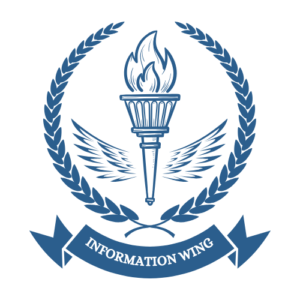- Understanding Matriculation in Pakistan
Matriculation, commonly referred to as “Matric,” encompasses grades 9 and 10 in Pakistan’s education system. Upon successful completion, students are awarded the Secondary School Certificate (SSC), a credential essential for progressing to higher secondary education.
- Structure of the Matric System
The Matric system spans two academic years:
- Grade 9 (Class IX): Students typically begin at age 14 or 15, selecting a study group—Science, Arts, or Computer Science—that aligns with their interests and career goals.
- Grade 10 (Class X): This year culminates in the SSC examinations, assessing students’ proficiency in their chosen subjects.
- Subject Selection
Students choose between different study groups, each comprising compulsory and elective subjects:
- Compulsory Subjects: Urdu, English, Mathematics, Islamic Studies (for Muslim students), Ethics (for non-Muslim students), and Pakistan Studies.
- Elective Subjects:
- Science Group: Physics, Chemistry, Biology/Computer Science.
- Arts Group: Civics, Economics, Education, among others.
Selecting the right combination is crucial, as it influences future academic and career pathways.
- Examination Boards
In Pakistan, Matric exams are administered by various Boards of Intermediate and Secondary Education (BISE), each catering to different regions:
- Punjab Board: Includes Lahore, Rawalpindi, Faisalabad, and others.
- Sindh Board: Covers Karachi, Hyderabad, Sukkur, etc.
- Khyber Pakhtunkhwa Board: Encompasses Peshawar, Swat, Abbottabad, among others.
- Federal Board: Operates nationwide, including Islamabad and cantonment areas.
Each board conducts exams and awards certificates within its jurisdiction.
- Enrolling in a Reputable Academy for Matric Exam Preparation
Joining a reputable academy can significantly enhance a student’s performance in Matric exams. One such esteemed institution is KIPS Academy, which has been a frontrunner in educational excellence for over 24 years. KIPS offers structured programs tailored to the Matric curriculum, providing students with:
- Experienced Faculty: Learn from seasoned educators who specialize in secondary education.
- Comprehensive Study Materials: Access meticulously crafted notes and practice books that cover all subjects extensively.
- Regular Assessments: Participate in periodic tests and mock exams to gauge understanding and readiness.
- Personalized Feedback: Receive constructive evaluations to identify strengths and areas for improvement.
KIPS Academy’s proven track record of producing top achievers in board exams makes it a preferred choice for students aiming for excellence.
- Importance of Matriculation
Achieving good grades in Matric exams is vital, as it:
- Determines Eligibility: For admission into intermediate colleges and specific study streams.
- Influences Career Paths: High scores can open doors to prestigious institutions and scholarships.
- Builds Academic Foundation: Establishes the groundwork for future studies in various disciplines.
- Amendments in Marks Improvement Rules by Boards
Various educational boards in Pakistan have specific policies regarding marks improvement:
- Punjab Boards: Students are allowed multiple attempts within a period of two years to improve their marks. They can choose to reappear in any subject or part (Part-I or Part-II) or as a whole.
- Federal Board (FBISE): Candidates can improve as many subjects as they desire from Part-I or Part-II or both within one year of passing the examination. Both theory and practical exams must be retaken if applicable.
- Khyber Pakhtunkhwa (KPK) Boards: Policies may vary; students are advised to consult their respective boards for detailed information.
- Azad Jammu and Kashmir (AJK) Board: Specific policies are in place; students should refer to official board communications for guidance.
- Balochistan Board: Policies may vary; students are encouraged to check with the board for current regulations.
It’s essential for students to stay updated with their respective boards’ policies, as rules regarding improvement exams can change.
- Recent Educational Reforms
To address challenges in the education system, authorities have implemented reforms such as:
- Curriculum Updates: Incorporating critical thinking and practical applications into syllabi.
- Teacher Training: Enhancing educators’ skills to promote interactive and student-centered learning.
- Digital Resources: Introducing online learning platforms to supplement traditional teaching methods.
- Post-Matriculation Pathways
After completing Matric, students can pursue various educational routes:
- Intermediate Education: Specializing in fields like Pre-Medical, Pre-Engineering, Commerce, or Arts.
- Technical Diplomas: Enrolling in programs such as the Diploma of Associate Engineering (DAE) for practical skills.
- Vocational Training: Acquiring specific skills for immediate employment opportunities.
- Effective Study Strategies
Implementing effective study strategies can enhance exam preparation:
- Consistent Study Routine: Establish a regular study schedule to cover all subjects systematically.
- Practice with Past Papers: Solving previous years’ exam papers aids in understanding



